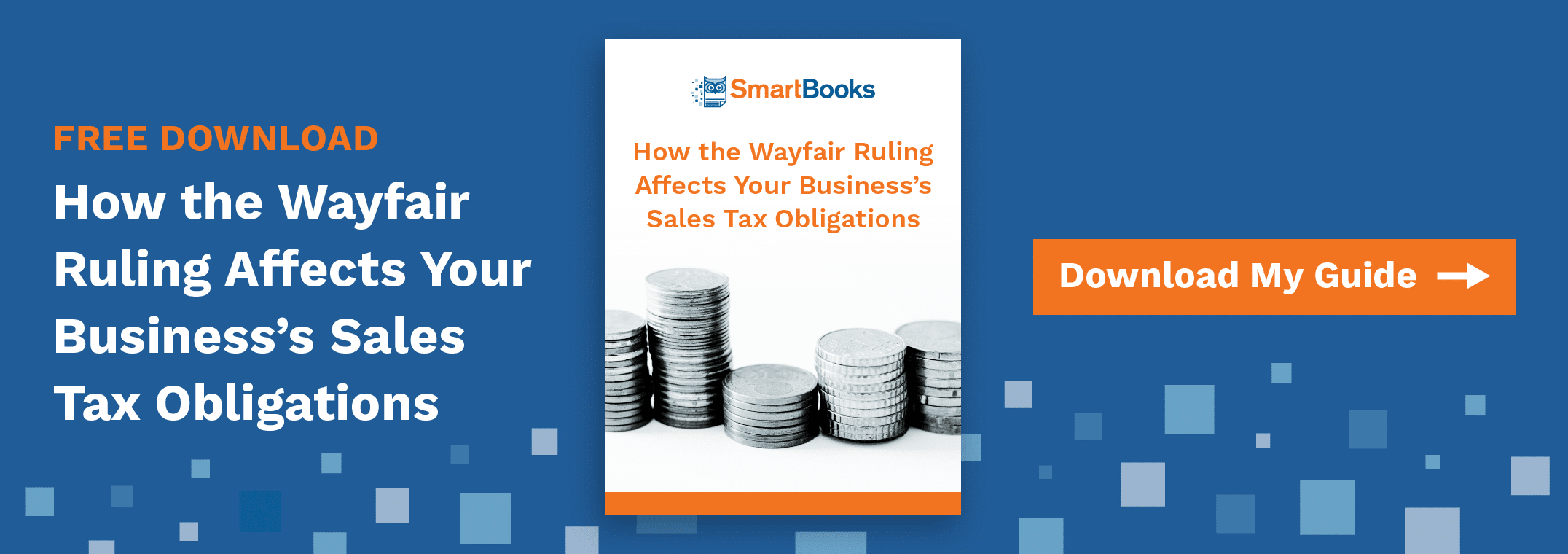Economic Nexus: A Beginner’s Overview of Wayfair

Three things are certain in this world: death, taxes, and the fact that private entities will be in direct competition with governments for control of their profits.
Such is the case in 2018’s South Dakota v. Wayfair, Inc. ruling. The Wayfair decision changed the rules for how companies and states were to levy sales taxes on purchases, largely done by changing the boundaries for economic nexus determinations. But what do these determinations actually mean, and how do small businesses know when they might be liable?
What Does Economic Nexus Mean?
Generally speaking, the term “economic nexus” refers to a business’s obligation to adhere to state and local guidelines in regards to its economic policies. It’s simple enough to understand, but quite difficult to put into practice, given that economic nexus provisions vary on a state-by-state basis. (As of now, 30 U.S. states have economic nexus provisions, though this will certainly develop over the coming years.)
Under Wayfair’s nexus rules, companies are now liable for collecting sales tax in any state wherein 200 transactions or $100,000 worth of sales are made. Compared to the older nexus provisions (which tended to favor the remote sellers), these new rules give the states more power—and likely will end up increasing most companies’ tax liability.
Of course, this is dependent on what type of business model the company has, and what type of nexus it earns through its operations.
Most Common Types of Nexus
The physical nexus has existed for a long time, stating that any company with a physical presence in a state must adhere to the state’s taxation laws (as well as any other local, jurisdictional laws that may apply). This provision is simple and easy enough to understand, but when we start getting into concepts related to eCommerce nexus, things get a bit trickier:
- Physical nexus (which still applies)
- Click-through nexus
- Affiliate nexus
- Marketplace nexus
These all fall under the umbrella of economic nexus, but they come with their own determinants for which actions will trigger them.
Failure to Comply
Unfortunately for business owners, compliance with Wayfair isn’t optional. If a company has qualifying nexus in a given state, it’s up to the business owners to understand their obligations and collect sales and use taxes correctly.
Failing to do so can be much more problematic than a simple fine or IRS penalty. Thanks to the unique lookback periods that the IRS may choose to apply, some business owners may be liable for substantial tax collection sums from pre-Wayfair years. And while these totals can add up quick, businesses can leverage various tax advantages to help mitigate the damage—most critical of which is the voluntary disclosure agreement (VDA). This simple task can drastically reduce a business’s liability for lookback taxes, provided that the disclosure is handled correctly and in accordance with the company’s economic nexus liability.
Changing Future
Although most states have already adopted new tax laws based on the Wayfair ruling, there are still many changes that will certainly take place. It’s important that all retail businesses, especially internet-based retailers, pay close attention to new legislation that’s sure to be passed in the upcoming years. Whether you like it or not, or understand it or not, these new laws could make or break many businesses if they don’t pay close attention.
Download our free guide below to learn more about the Wayfair ruling.
